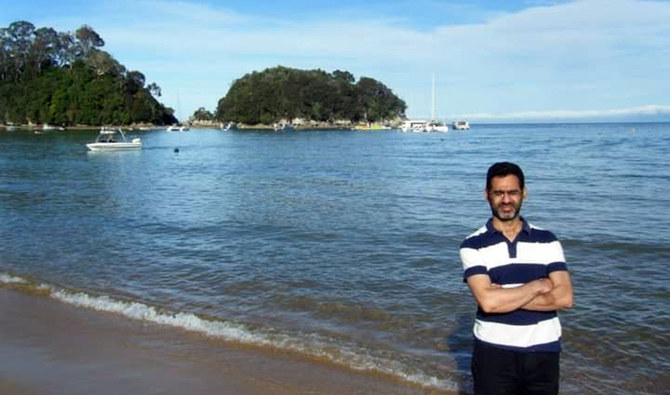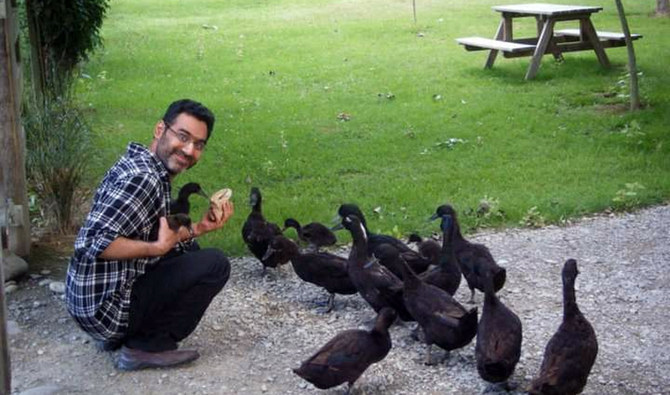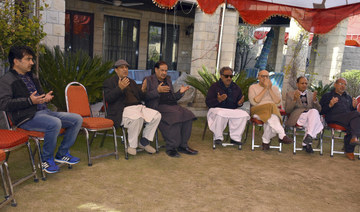PESHAWAR: The shock, disgust and disbelief over the killing of 50 people in attacks on two mosques in New Zealand reverberated thousands of miles away in Pakistan’s northwestern town of Abbottabad where a steady procession of family, friends and neighbours arrived on Saturday to offer condolences at the home of Naeem Rasheed.
In the footage of the assault at one of the mosques, live streamed by the attacker on Facebook, Rasheed, 52, could be seen launching himself at the gunman in an effort to stop him. He was gunned down.
By Saturday morning, Rasheed’s four brothers had not yet mustered the courage to tell their 75-year-old mother that her son was dead.
“We had told her he was seriously injured and put her to sleep after much struggle,” Rasheed’s brother Khurshid Alam, a doctor, said. “She woke up at 5am this morning and sat in front of the TV.”
When she learnt of her son’s fate, she went into shock but slowly, calm settled in after she was told that he had “embraced martyrdom while trying to save others.”
The twin attacks in the city of Christchurch on Friday, one at Al Noor Mosque in the center of the city and the other at Linwood Mosque, about three miles away, were ostensibly carried out by a white nationalist extremist who posted live video of the assault and a racist manifesto online.
Rasheed, and his son Talha Naeem, 21, both died in the attack at Al Noor Mosque.
His brother, Rizwan Rasheed, a retired air force officer, said Naeem was the fourth child among five brothers and their mother’s favourite. “He helped everyone … He was everybody’s favourite,” he said.
Rasheed worked as a banker in Pakistan for many years before moving to New Zealand in 2009 for postgraduate studies. His wife and three sons followed him in 2010. After getting a Master’s and a PhD from the University of Christchurch, Rasheed became a professor of business management and marketing there. His son Talha was a civil engineer and only recently employed.
The father and son are survived by Rasheed’s widow, a teacher at a college in Christchurch, and sons Abdullah Naeem, 19, a second-year engineering student, and six-year-old Ayan Naeem, who goes to the second grade.
Nadeem Khan, a resident of Christchurch whose wife is the sister of Rasheed’s widow, described Rasheed as a down to earth, humble man who lived to take care of his family and neighbours and always offered a helping hand to the poor. Recently, he said, Rasheed had purchased some beehives and wanted to start a honey business.
“He had been doing well,” Khan said. “And now the media here is full of praise for Naeem. One local newspaper published a flashing story about his bravery. It is a matter of pride for the Pakistani community here.”
Tariq ur Rahman, a hotel manager who missed the prayers at the Al Noor Mosque on Friday, remembered his “good friend” as a “very pious and kind man.”
“An eyewitness told us that they were hiding in a room inside the mosque when Naeem said he had to do something to stop the attacker,” Rahman said. “He left and ran towards the shooter. Unfortunately, he was shot just before his hands could reach for the gun.”
Rasheed’s uncle Professor Saleem Afzal, a retired teacher at Ayub Medical College, said his nephew had been an upstanding, brave man for as long as he had known him.
“I am proud of what he did inside the mosque,” the professor said.



























